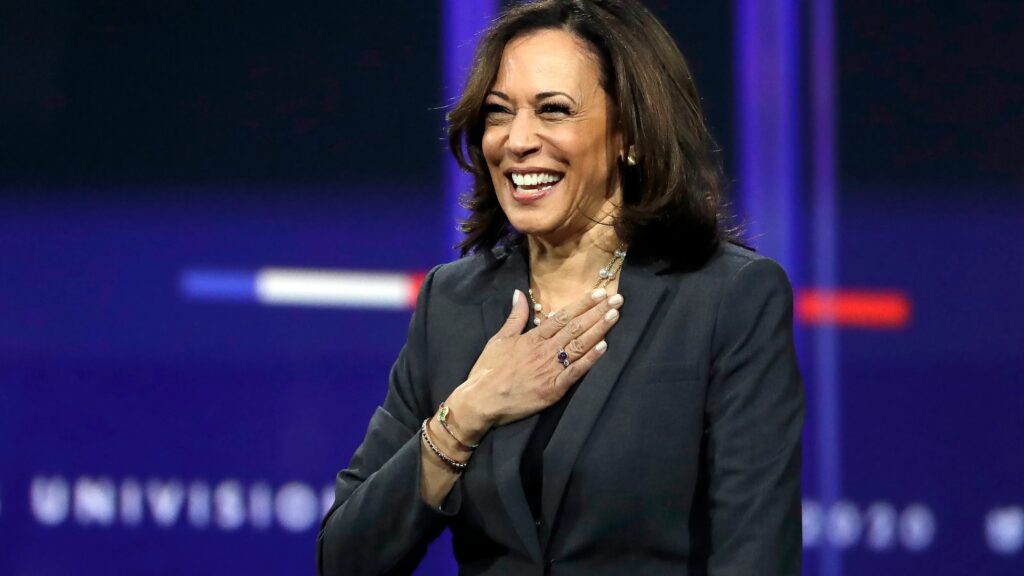
As Facebook deleted dozens of hateful, racist posts about US Vice President-Elect Kamala Harris earlier this week, one can’t help but wonder: What makes someone more (or less) black than others?
It’s a question asked more frequently following Joe Biden and Kamala Harris’ historic bid for the presidency of the United States—with Facebook groups popping up, claiming she’s not “black enough” to be on the Democrat ticket.
Worse still, after a decades-long, successful political career in California, detractors allege Harris isn’t a ‘true US citizen’.
What does that mean exactly for a woman who’s identified as black her whole life? Nothing, since the facts don’t lie.
Kamala Harris was born on October 20, 1964—the first daughter to newlywed academics Donald Harris, a black Jamaican, and Shyamala Gopalan Harris, of Indian descent.

Ironically, the question of whether a US presidential candidate is “black enough” is a song we heard just over 13 years ago when a spritely Barack Obama announced his bid in 2007.
Kamala Harris was born in Oakland, California, ergo American soil. Fact.
She has Jamaican and Indian ancestry coursing through her veins. Fact.
She doesn’t fit in just one ‘category’ of American, Harris holds two: a biracial, Black and Indian woman on course to become the second-most powerful person in the free world.
The rhetoric isn’t surprising for Dr Orville Taylor, from the country that invented the ‘one-drop rule’, where anyone with even the slightest African attributes was deemed black no matter their skin tone.
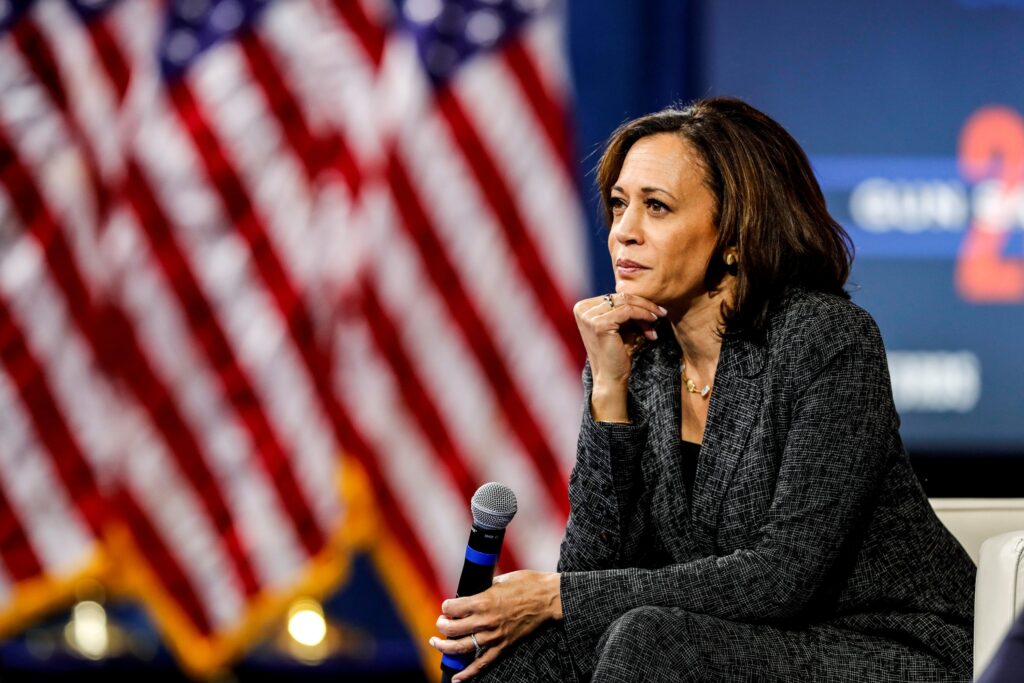
Dr Taylor, speaking with Our Today on Wednesday (November 18), also found it interesting that after the civil rights movement, the definition of ‘blackness’ is more nuanced than ever before.
“The funny thing is that race doesn’t really exist. Race is not a biological category, it is biological features people choose to give cultural relevance to; a person’s race will vary as you move from one particular society to another,” he began.
“In Jamaica, based on the dynamics of our slavery and colonial experiences, ‘brownness’ and ‘blackness’ are different—but in the United States they are the same,” Dr Taylor told Our Today.
“[America] used to have a one-drop rule meaning where you had a trace of African ancestry or slightly visible African [traits] you are considered to be black. A big part of that is not just whether she has African ancestry, which of course she does, but how much she identifies with her blackness,” the author and columnist continued.

There is no question, which Harris self identifies with more, as on multiple occasions, she has described herself as a black woman. An observation Dr Taylor also made with Our Today.
“In fact, I believe she identifies more with her blackness, based on her politics and her associations, certainly than her Indian ancestry—not that she doesn’t embrace it,” Taylor explained.
‘Black’ is the first word used by the Biden-Harris campaign. The future US Senator is also a proud member of Howard’s 1986 graduating class, a historically black college/university (HBCU).
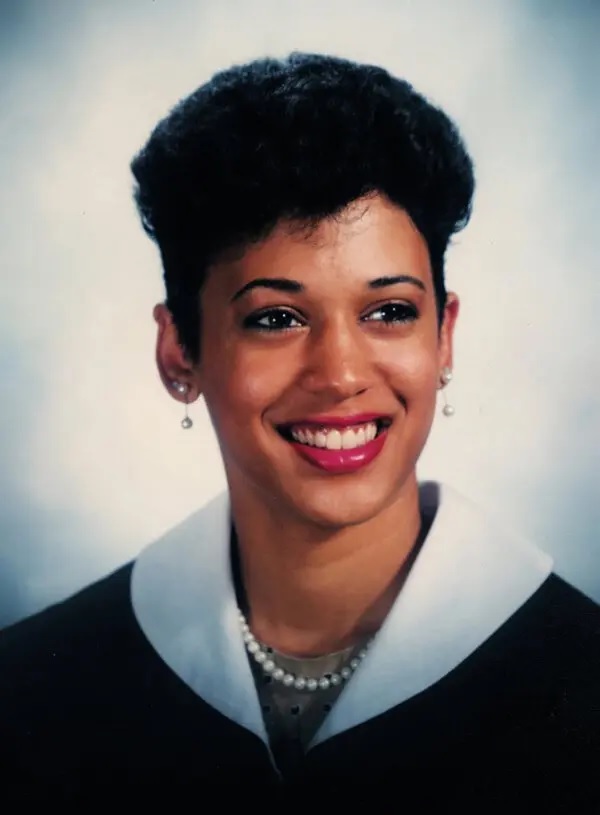
The word ‘black’ weighed heavily in her Saturday, November 7 speech in Wilmington, Delaware, as Harris thought back on the countless struggles black women had faced in the US. And still, being “too often overlooked” Harris praised her fellow black women for proving they are the backbone of American democracy.
“I’m thinking about my mother, Shyamala Gopalan Harris, and the generations of black women who came before me who believed so deeply in an America where a moment like this is possible,” she said.
Harris is no stranger to Jamaica either, as she and an elder Harris recall family trips to the island in the 1970s.
Professor Harris, in a September 2018 memoir published in Jamaica Global, said: “One of the most vivid and fondest memories I have of that early period with my children is of the visit we made in 1970 to Orange Hill.”
“We trudged through the cow dung and rusted iron gates, up-hill and down-hill, along narrow unkempt paths, to the very end of the family property, all in my eagerness to show to the girls the terrain over which I had wandered daily for hours as a boy,” he continued.
While their personal relationship remains somewhat undiscussed, Harris has been vocal about her identity as a black woman—arguably with much greater a claim that those who’ve professed blackness.
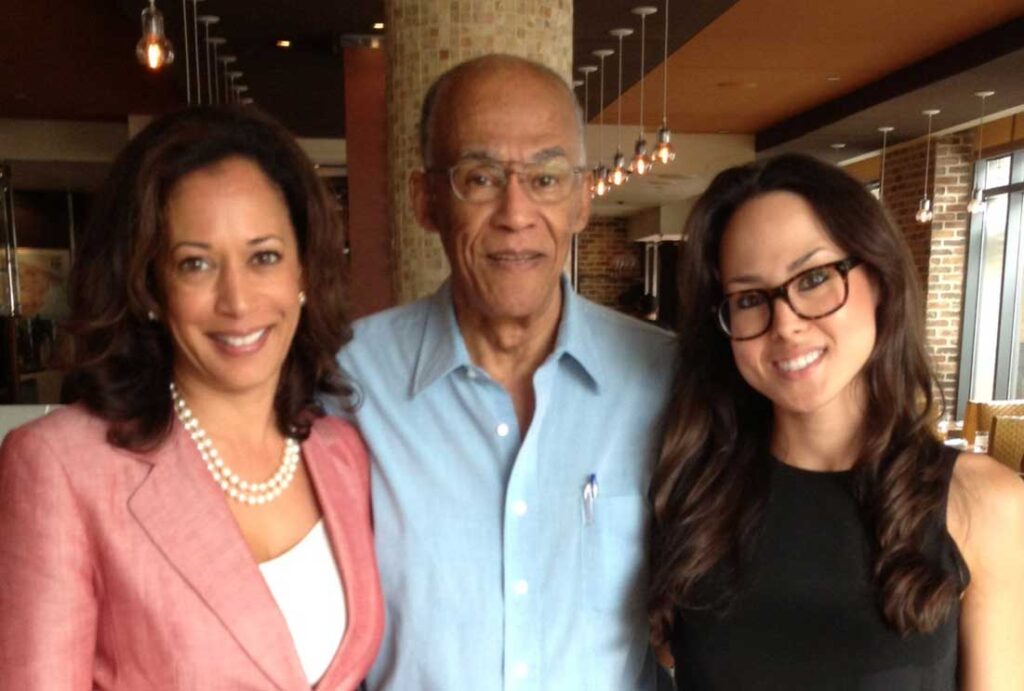
“Being ‘black enough’? Well, it’s what you identify as, because you have people who identified themselves as black who don’t look as black as she does. Michael Manley, for example, is ‘whiter’ than she is,” Dr Taylor contended.
“The most pro-black prime minister, married to a black woman, was only a quarter black and yet he took on black identity,” he argued.
Like it was done with Obama before her, the claims of Kamala Harris’ lack of black identity are baseless and don’t take away from her roots of blackness.
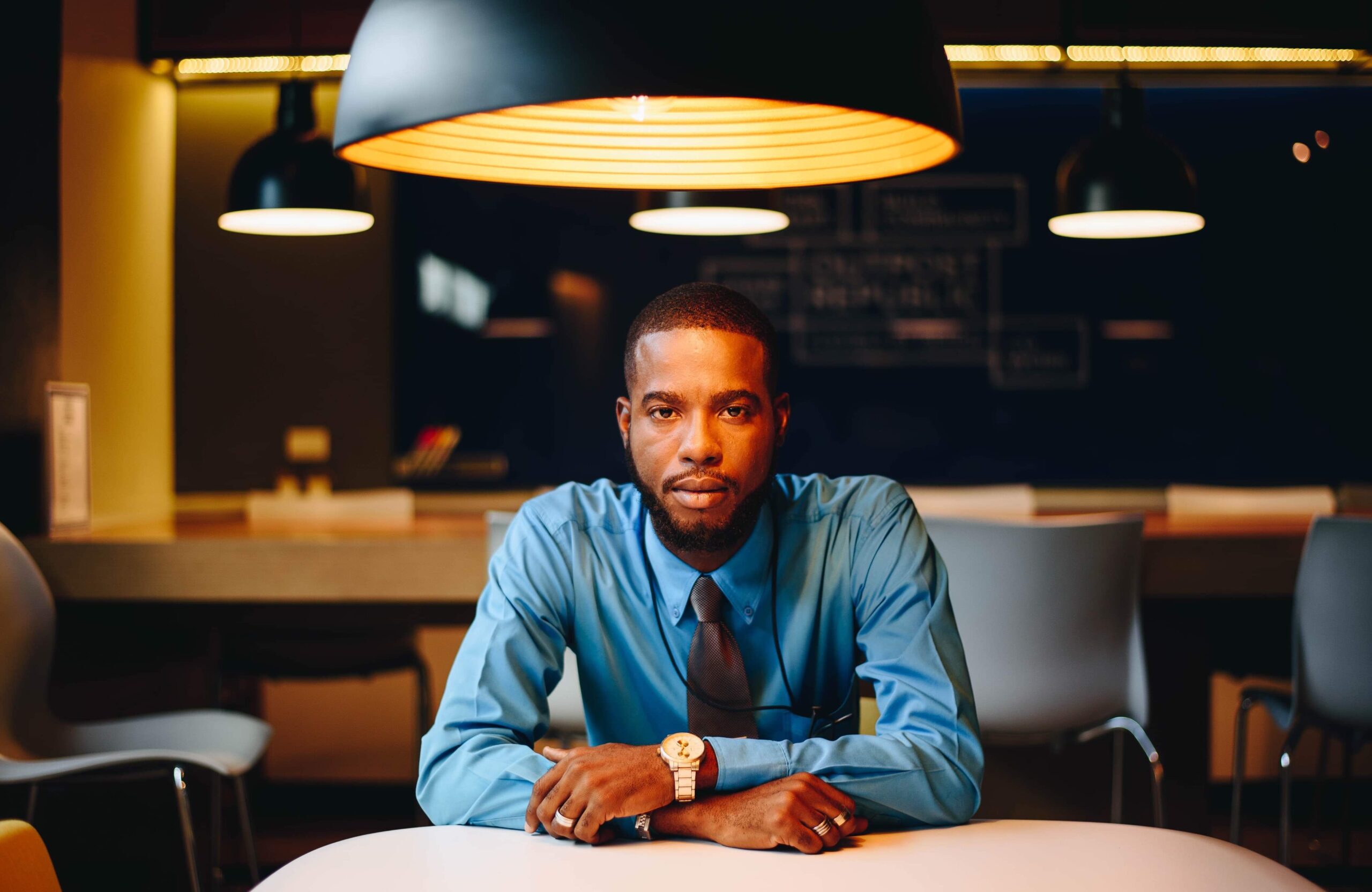
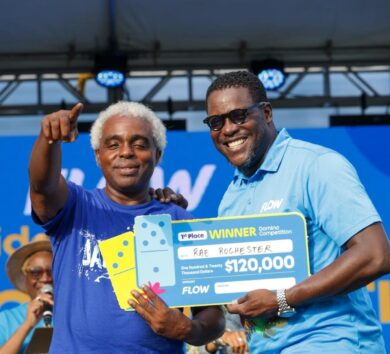

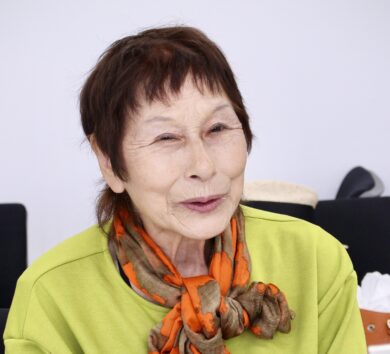



Comments